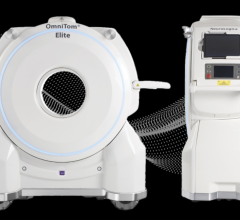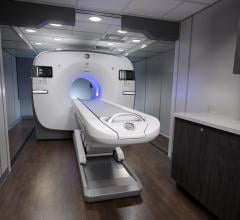
September 14, 2011 – To accelerate and enhance the development of metabolic imaging and other innovative technology, GE has launched a new entity, Research Circle Technology Inc. (RCT). RCT’s vision is to create a strong alliance between GE’s scientists and the world’s leading universities, providing easy access to GE’s organic technology and wide scope of healthcare expertise in an open innovation structure.
Already, global leaders of imaging technology and disease detection research have explored potential applications for metabolic imaging technology:
- University of California – San Francisco’s Surbeck Laboratory for Advanced Imaging has announced the groundbreaking results of a study utilizing GE’s 13-C (Carbon 13) technology to study prostate cancer. “This is the first time researchers have used this technology to conduct real-time metabolic imaging in a human patient, and represents a revolutionary approach to assessing the precise outlines of a tumor, its response to treatment and how quickly it is growing,” said Sarah J. Nelson, Ph.D., a professor of radiology and biomedical imaging at UCSF. Nelson is presenting the team’s findings at the World Molecular Imaging Conference (WMIC) in San Diego this week.
- Scientists at Cancer Research UK’s Cambridge Research Institute have developed a technique to show the effectiveness of breast cancer treatment weeks earlier than current methods through metabolic imaging. According to lead researcher Professor Kevin Brindle, “There has been a need to develop imaging methods that can help detect treatment response more accurately than traditional methods and before tumors change size. Our new imaging method not only shows early evidence that treatment is working but could also help predict the long-term outcome. We expect that these techniques will have an impact for patients in the near future.”
Through RCT, GE looks to continue developing this innovative technology, providing the tools, services and solutions so that leading researchers can focus on their investigations into the biochemistry of metabolism and speed the discovery of potentially lifesaving knowledge. RCT will sell SpinLab polarizers as well as provide the licensing framework for partners to continue to develop the metabolic imaging applications. RCT helps enable GE to fully connect with the skills and knowledge of the research community, with the goal of transitioning technology from ‘bench to bedside’ more efficiently.
“The focused goal of RCT is open collaboration to bring hyperpolarization technology to the worlds’ leading researchers and enable their studies to better understand the biochemistry of life,” said Jonathan A. Murray, managing director, RCT. “The early results are very exciting and we are delighted to collaborate with this community to help bring this innovative technology to its full potential.”
For more information: www.gehealthcare.com


 July 30, 2024
July 30, 2024 








